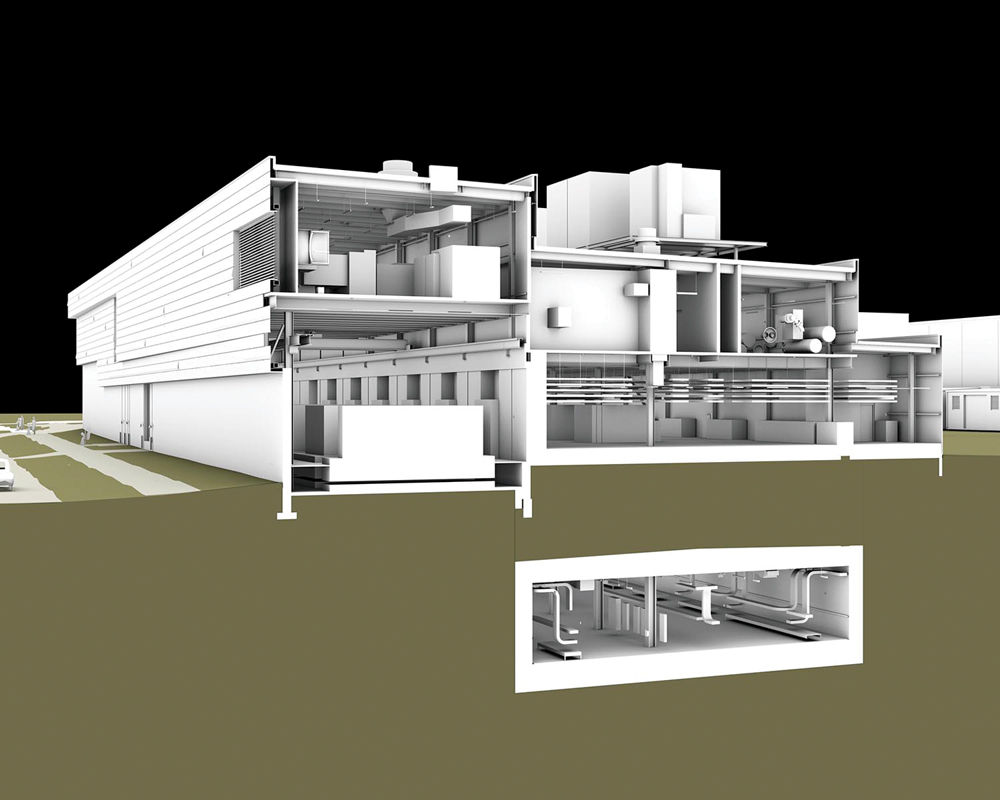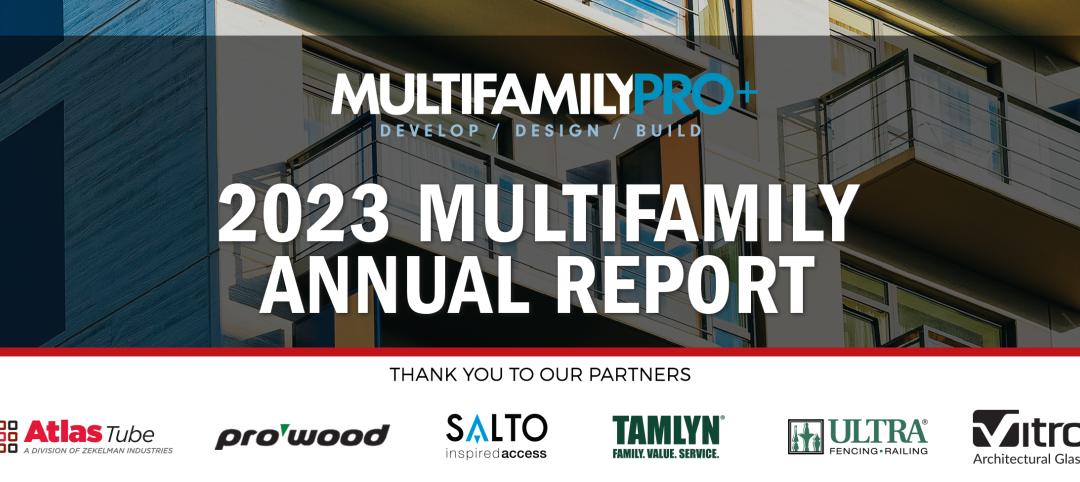Automated clash detection. Been there, done that. Quantity takeoffs. Mastered it. Virtual construction coordination. Old news.
More than 25 years after the first BIM software tools came to market, the U.S. construction industry has largely mastered the BIM/VDC learning curve and is implementing 3D BIM coordination on a regular basis. According to Building Design+Construction’s 2013 Giants 300 survey, 80% of the nation’s largest architecture, engineering, and construction firms have adopted BIM/VDC tools and report having earned revenue working on BIM-driven projects.
Let’s face it: Most of what’s discussed in the BIM/VDC arena today is yesterday’s news. So BD+C set out to identify the next big developments in BIM/VDC technology and implementation. We reached out to dozens of AEC firms that made our annual BIM Giants lists and asked one simple question: What does BIM 2.0 look like to you? Here’s what they had to offer:
Precise field-placing using robotic total stations
Structural steel items embedded in cast-in-place concrete are often misaligned or omitted in the field due to poor coordination between the structural engineer, concrete subcontractor, and steel erector. In a broader sense, the use of meta data in a building model promises great benefits, but it has not found a place in general practice because of questions of accuracy, responsibility, and liability for use of the data.
TOP BIM ARCHITECTURE FIRMS
2012 BIM Revenue ($)1 Gensler $484,286,1302 HOK $385,700,0003 HDR Architecture $299,828,0004 Perkins+Will $270,225,0005 Skidmore, Owings & Merrill $267,601,7006 HKS $216,000,0007 Stantec $197,000,0008 Cannon Design $165,000,0009 RTKL $131,834,950910 SmithGroupJJR $105,598,00011 EYP $85,381,169
TOP BIM ENGINEERING FIRMS
2012 BIM Revenue ($)1 Jacobs Engineering Group $4,465,746,0002 URS Corp. $292,864,7493 Science Applications International Corp. $131,066,2354 Arup $123,364,0285 Merrick & Co. $106,000,0006 SSOE Group $99,560,5617 Thornton Tomasetti $93,431,5458 Buro Happold Consulting Engineers $78,006,0009 Middough $60,000,0009 KPFF Consulting Engineers $60,000,000
TOP BIM CONSTRUCTION FIRMS
2012 BIM Revenue ($)1 Turner Corporation, The $5,924,000,0002 Clark Group $2,224,508,1273 DPR Construction $2,175,000,0004 Hoffman Construction $2,155,377,2765 Hensel Phelps $2,089,180,0006 Mortenson Construction $1,992,450,0007 Balfour Beatty $1,902,988,3328 McCarthy Holdings $1,879,000,0009 JE Dunn Construction $1,513,283,00510 Walsh Group, The $1,313,656,333
Even though hardware and software are available today, we lack a standard practice outlining the responsibilities of each stakeholder to create, verify, and utilize geospatial data in the BIM model.
—Steve Wilkerson, Associate Vice President, Haynes Whaley Associates
Extracting data for FM operations
The next “big trend” in BIM is the set-up, coordination, and extraction of data in COBie (Construction Operations Building Information Exchange) format so that more information can be pulled from the BIM model for use in client-based FM software, such as Maximo and AiM. The primary obstacle is figuring out how to do this when so much information for a project resides in multiple models. Programs such as BIMLink will be developed to help with the management of these “data buckets” and with the flow of that data out of and back into BIM models.
This trend will also push the AEC industry closer together, and new ways of collaborating—such as IPD multiple-party, single-contract delivery methods—will continue to evolve to help remove the obstacles to integrating data from all of the necessary parties involved.
—Sam Boyd, Quality Assurance Director, Cooper Carry
BIM on the go
Mobility is becoming more important. Multi-disciplinary teams in multiple locations collaborating on one model will require faster data networks and the use of cloud computing. Take that to the next step and design teams will be expected to instantly communicate with the construction and fabrication in the field through the model in the cloud.
We’re also going to see teams untethered from their desktops using more mobile tools (tablets, smartphones, etc.) to modify, navigate, and display the model. We are starting to work with tools that allow us to open BIM models on an iPad or iPhone to share with clients on the go.
—Don Ghent, Principal and Global Technical Leader, Gensler
Creating a common BIM language
The Industry Foundation Classes (IFC) being developed by buildingSmart International will eventually define actual data elements of a building model and standardize them industrywide. The group is working to develop and promote a standard data format that can be used across all platforms (Revit, Tekla, Bentley, etc.) so that data can be transferred and read across all model authoring and audit software programs. The walls of proprietary software will be broken down by IFC. All models will soon be able to interact with each other in ways not possible before.
—Aleisha Jaeger, LEED AP, Operations Manager-Construction, Epstein
The rise of virtual reality
The integration of BIM with virtual reality technologies is a promising development. For example, use of augmented reality—where both graphical and contextual information are overlaid onto building systems in the real world to produce the effect of x-ray vision—will allow the operator to see the utilities installed in a wall cavity, ceiling space, and even underground. The possibility of cost savings using these applications is fascinating, and the execution and user experience are quite simple (e.g., Google Glass viewer or mobile device such as an iPad).
—Andre Zoldan, Chief Information Officer, Albert Kahn Associates
Other ideas offered by the group include:
• Use of early phase database programs, such as Trelligence’s Affinity, to do programming and planning in a database-rich environment that can be directly imported into BIM programs.
• Automating code compliance review with the BIM model. The International Code Council is leading and funding the buildingSMART initiative to develop SMARTcodes, which could allow teams to automate the entire code review process.
• Establishing central project control. Building models, along with the use of RFID, barcode technology, and GPS will soon facilitate “smart” job sites. For example, materials arriving on site will automatically be sensed and recorded by the model as delivered. No paperwork will be required.
Related Stories
MFPRO+ Special Reports | Oct 27, 2023
Download the 2023 Multifamily Annual Report
Welcome to Building Design+Construction and Multifamily Pro+’s first Multifamily Annual Report. This 76-page special report is our first-ever “state of the state” update on the $110 billion multifamily housing construction sector.
Giants 400 | Oct 23, 2023
Top 190 Multifamily Architecture Firms for 2023
Humphreys and Partners, Gensler, Solomon Cordwell Buenz, Niles Bolton Associates, and AO top the ranking of the nation's largest multifamily housing sector architecture and architecture/engineering (AE) firms for 2023, as reported in Building Design+Construction's 2023 Giants 400 Report. Note: This ranking factors revenue for all multifamily buildings work, including apartments, condominiums, student housing facilities, and senior living facilities.
Affordable Housing | Oct 20, 2023
Cracking the code of affordable housing
Perkins Eastman's affordable housing projects show how designers can help to advance the conversation of affordable housing.
Senior Living Design | Oct 19, 2023
Senior living construction poised for steady recovery
Senior housing demand, as measured by the change in occupied units, continued to outpace new supply in the third quarter, according to NIC MAP Vision. It was the ninth consecutive quarter of growth with a net absorption gain. On the supply side, construction starts continued to be limited compared with pre-pandemic levels.
Warehouses | Oct 19, 2023
JLL report outlines 'tremendous potential' for multi-story warehouses
A new category of buildings, multi-story warehouses, is beginning to take hold in the U.S. and their potential is strong. A handful of such facilities, also called “urban logistics buildings” have been built over the past five years, notes a new report by JLL.
Building Materials | Oct 19, 2023
New white papers offer best choices in drywall, flooring, and insulation for embodied carbon and health impacts
“Embodied Carbon and Material Health in Insulation” and “Embodied Carbon and Material Health in Gypsum Drywall and Flooring,” by architecture and design firm Perkins&Will in partnership with the Healthy Building Network, advise on how to select the best low-carbon products with the least impact on human health.
Contractors | Oct 19, 2023
Crane Index indicates slowing private-sector construction
Private-sector construction in major North American cities is slowing, according to the latest RLB Crane Index. The number of tower cranes in use declined 10% since the first quarter of 2023. The index, compiled by consulting firm Rider Levett Bucknall (RLB), found that only two of 14 cities—Boston and Toronto—saw increased crane counts.
Office Buildings | Oct 19, 2023
Proportion of workforce based at home drops to lowest level since pandemic began
The proportion of the U.S. workforce working remotely has dropped considerably since the start of the Covid 19 pandemic, but office vacancy rates continue to rise. Fewer than 26% of households have someone who worked remotely at least one day a week, down sharply from 39% in early 2021, according to the latest Census Bureau Household Pulse Surveys.
Luxury Residential | Oct 18, 2023
One Chicago wins 2023 International Architecture Award
One Chicago, a two-tower luxury residential and mixed-use complex completed last year, has won the 2023 International Architecture Award. The project was led by JDL Development and designed in partnership between architecture firms Goettsch Partners and Hartshorne Plunkard Architecture.
Giants 400 | Oct 17, 2023
Top 130 Sports Facility Architecture Firms for 2023
Populous, Gensler, HOK, and HKS head BD+C's ranking of the nation's largest sports facility architecture and architecture/engineering (AE) firms for 2023, as reported in Building Design+Construction's 2023 Giants 400 Report.

















